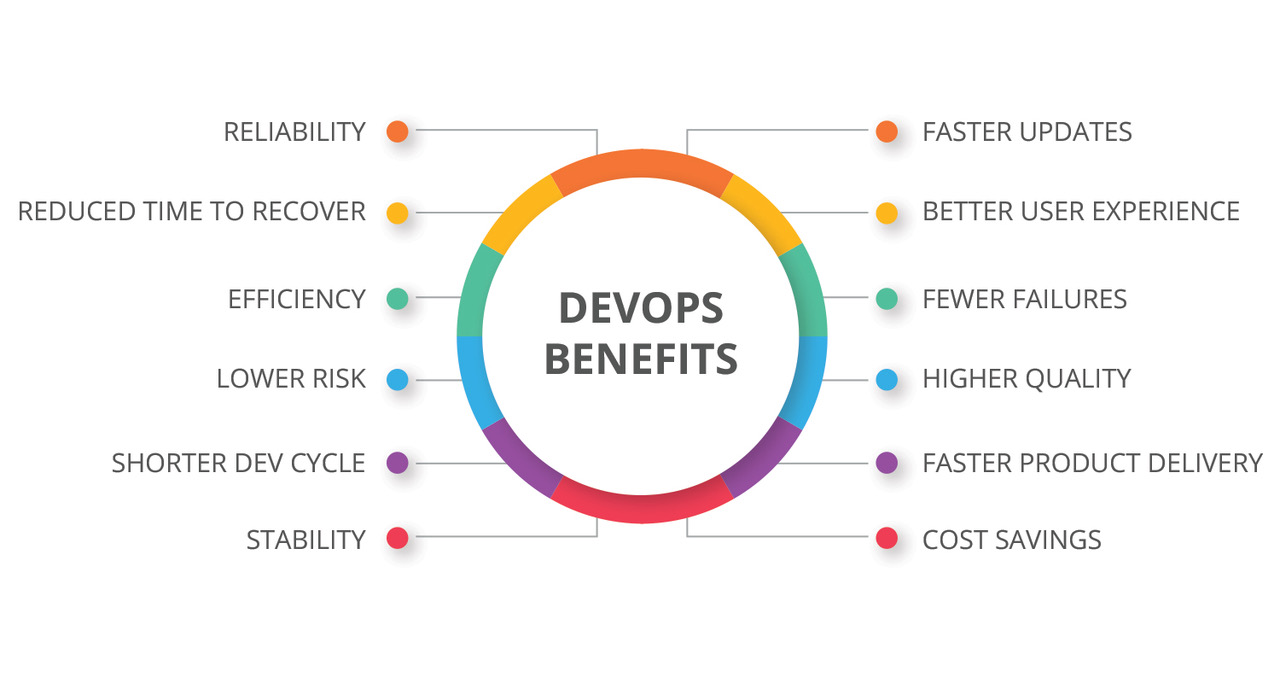DevOps is a hot topic in the programming world these days. But what is it, exactly? And how can you go about implementing DevOps concepts in your own work? In this blog post, we’ll explore the answers to these questions and more. So whether you’re a programmer who’s just getting started with DevOps or an experienced developer who wants to learn more about this rapidly growing field, read on!
What Is DevOps?
In a nutshell, DevOps is all about collaboration and communication between software developers and operations staff. The goal is to streamline the software development process and make it more efficient. By doing so, businesses can save time and money while also reducing the risk of errors.
3 Main Pillars of DevOps:
Culture: This refers to the attitudes, values, and beliefs that guide how people interact with each other and with technology.
Automation: This is the use of tools and scripts to automate repetitive tasks.
Measurement: This involves collecting data about the software development process so that you can identify bottlenecks and areas for improvement.
Now that we’ve answered the question “what is DevOps,” let’s move on to discussing how to implement DevOps concepts in your own work.
How to Implement DevOps Concepts
There are four main steps you need to take in order to successfully implement DevOps concepts in your business:
1) Build a foundation of trust between developers and operations staff. This step is critical because it sets the stage for collaboration and communication. If there’s no trust, then there’s no foundation for a successful relationship.
2) Use automation to streamline tasks. As we mentioned earlier, automation can save you time and money while also reducing the risk of errors. But it’s important to use automation wisely; if you try to automate everything, you’ll quickly find yourself overwhelmed. Instead, focus on automating tasks that are repetitive or that would benefit from being automated (such as error-prone tasks).
3) Collect data and measure performance. You can’t improve what you don’t measure, so it’s important to collect data about the software development process in order to identify areas for improvement. Try To collect data at each stage of the development process so that you can identify bottlenecks and optimize accordingly.
4) Continuously iterations and feedback loops. The goal of DevOps is to make the software development process more efficient, so it’s important to continuously iterate and look for ways to improve. One way to do this is by establishing feedback loops so that you can get input from developers and operations staff at every stage of the process.
Benefits of DevOps

Improved communication and collaboration among teams: One of the most often cited benefits of DevOps is the improved communication and collaboration that it fosters among teams. By definition, DevOps is all about bringing people together to work toward a common goal. When teams are able to come together and openly communicate with each other, they’re able to solve problems more quickly and efficiently.
Increased customer satisfaction: Another unexpected benefit of DevOps is increased customer satisfaction. When your team is able to work together more effectively, your customers will be able to receive the products and services they need in a timely manner. This improved efficiency will result in happier customers who are more likely to recommend your company to others.
Greater flexibility and agility: Yet another benefit of DevOps is greater flexibility and agility. Because DevOps encourages collaboration among teams, it also allows for greater flexibility when it comes to how work gets done. This means that your team will be able to adapt to changes more quickly and easily, which can be a major advantage in today’s ever-changing business landscape.
Reduced costs: One of the most unexpected benefits of DevOps is reduced costs. When teams are able to work together more efficiently, it ultimately leads to lower costs for the organization as a whole. This can free up funds that can be used for other areas of the business or reinvested back into the company.
Improved morale: Finally, one of the most unexpected but nonetheless important benefits of DevOps is improved morale. When team members feel like they’re able to contribute to the success of the company in a meaningful way, they’re more likely to be engaged and enthusiastic about their work. This improved morale can lead to even greater successes for the company down the line.
Tools Used in DevOps methodology:

- Source code repository – Git, Subversion, Cloudforce, Bitbucket, and
- Build server – Jenkins, SonarQube, and Artifactory.
- Configuration management – Puppet and Chef.
- Virtual infrastructure – Amazon Web Services, Google Cloud and Microsoft Azure. (Private virtual clouds can also be considered here.)
- Test automation – Selenium, Bamboo, and Water.
- Pipeline orchestration – Kubernates, Openshift, Docker Swarm, Google Container Engine, Google Cloud Run, AWS Elastic Kubernetes Service (EKS), Amazon EC2 Container Service (ECS), Azure Container Instances, etc.
Conclusion
As you can see, there are a number of unexpected benefits that come along with implementing DevOps within your organization. From improved communication and collaboration among teams to increased customer satisfaction, there are plenty of reasons why you should consider making the switch to DevOps. So what are you waiting for? The time to reap the benefits of DevOps is now!

